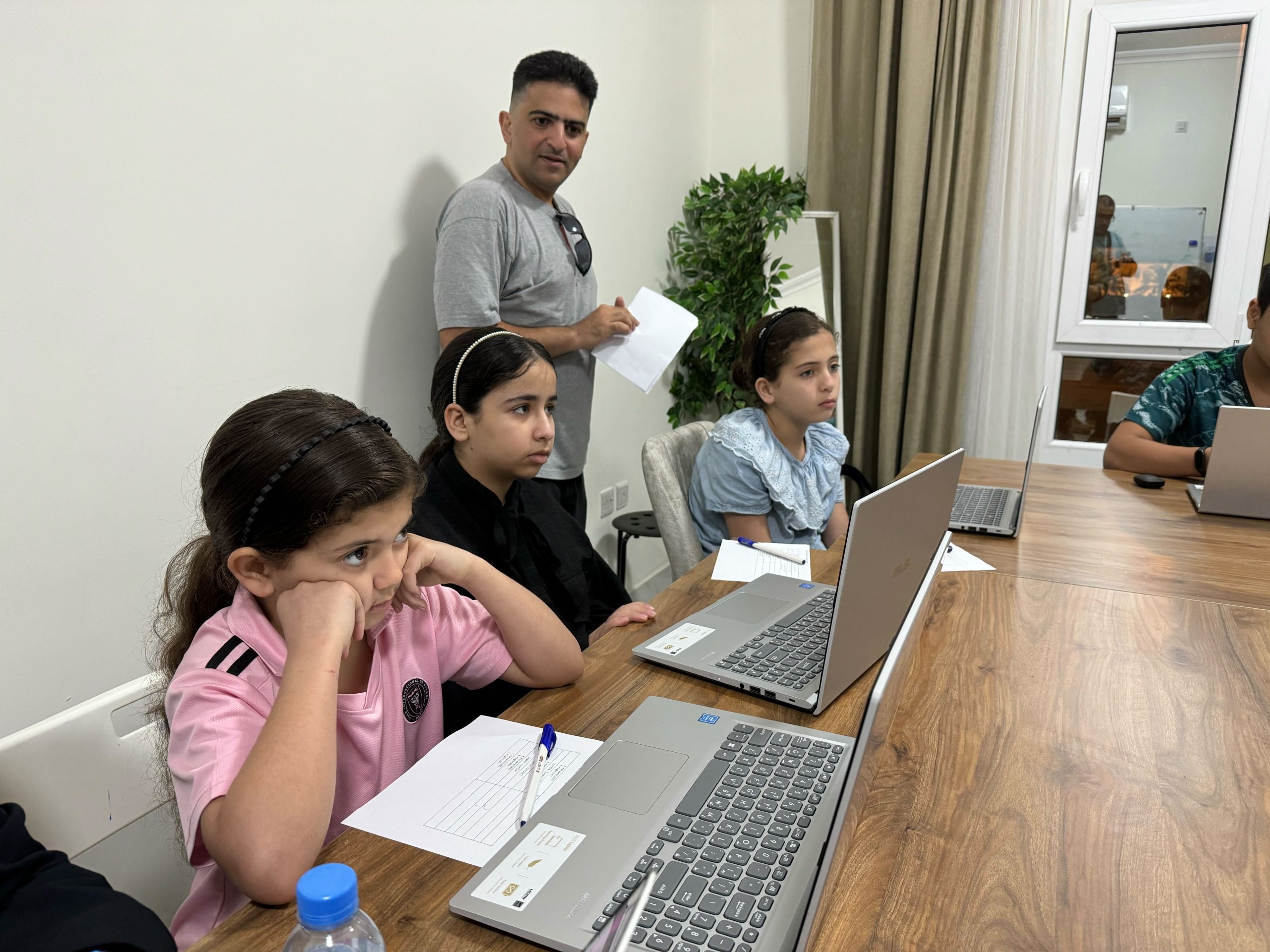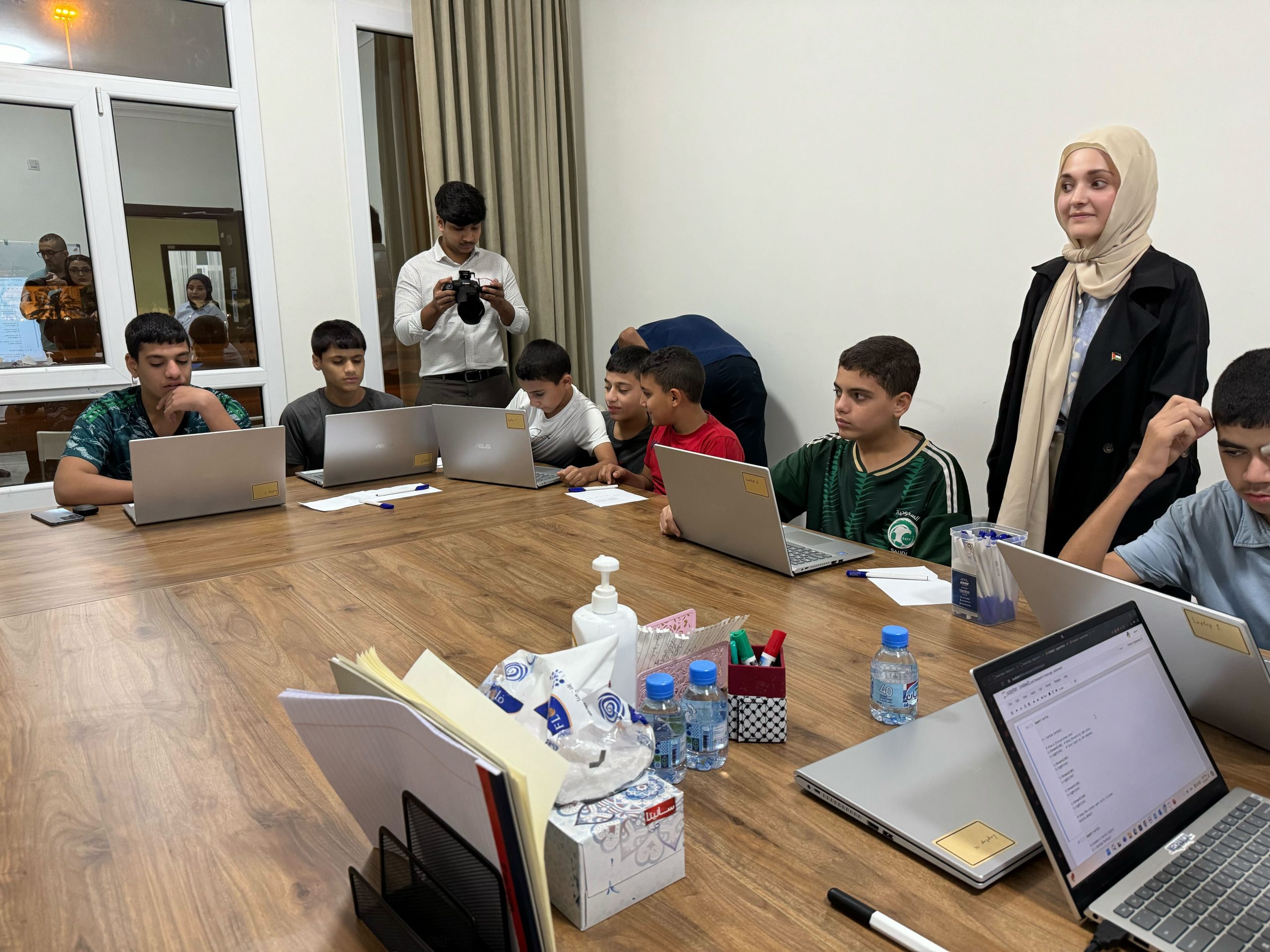Jouri sat at her laptop carefully typing in steps of a short Turtle code, a basic drawing board feature of the Python coding language, as she received assistance from a number volunteers.
The 10-year-old is one of ten Palestinian children receiving a workshop from the Afghan Dreamers, the all-female women’s robotics team
“This is my first time coding,” Jouri told Doha News. “I like it so far.”
The children, all evacuated from the Gaza Strip and currently residing in Al Thumama Complex, were guided in creating a five-pointed star and a square using basic code on individual laptops.
This workshop marks the first collaboration between the Afghan robotics team and Qatar’s Ministry of Foreign Affairs. Most of the children, including seven boys and three girls, were new to coding, making this their first exposure to the skill in a small classroom setting.
“We wish to hold more workshops like this in the future,” a member of the Afghan Dreamers told Doha News.
Roya Mahboob, founder of the Digital Citizen Fund, which oversees Afghan Dreamers, emphasised the importance of STEM education for young children.
“STEM education is the future, and it is very importance for us to invest today in our children to learn about science, technology, engineering, arts and math, because these are the future jobs,” Mahboob told Doha News. “We have to build an environment, an opportunity, for kids to learn these things.”
This especially applies to refugee and displaced children who already face much uncertainty, the team founder stressed.
“These skills not only help them become prepared for the future, but also become more innovative and creative and learn how to solve problems in their societies and help their communities,” Mahboob said.
She added that the Afghan Dreamers were honoured to meet with young children from the Gaza Strip to share their knowledge and skills by teaching the basics of programming and artificial intelligence.
“I think they [the children] are all happy and encouraged,” Mahboob said.

Ibrahim Fedwai, a volunteer instructor at the robotics workshop, said that the workshop gave the children a chance to be introduced into the world of innovation.
“[The workshops] are giving these children the chance to see how innovation is moving forward, and is also an introduction to what robotics is as well as new concepts that they did not have previous exposure to,” said Fedwai.
Mahboob also described a sense of common ground between her team and the relocated Gazan children.
“I was born in a war-torn country. Most of the kids, especially young women, face more challenges. Kids in a war-torn country are not taking any sides in a political situation, but they are the ones losing their futures and their abilities to go to school,” Mahboob said.
“Today, girls in Afghanistan cannot continue their education beyond the sixth grade, but unfortunately we see in Gaza that most of the children cannot even go to the first grade.”
Access to opportunities
The Al Thumama Complex, which houses Palestinians evacuated from the Gaza Strip due to the ongoing conflict, is a key component of a Qatari initiative led by Amir Sheikh Tamim bin Hamad Al-Thani. This campaign aims to sponsor 3,000 orphans and provide medical care for 1,500 injured Palestinians from Gaza.
Similarly, Qatar relocated tens of thousands of Afghans to Doha on a temporary basis following the Taliban’s seizure of power of Afghanistan in 2021.
The members of the Afghan robotics team were among those evacuated to Qatar and, under the Qatar Fund for Development, were able to continue their studies at Qatar Foundation’s Education City through scholarships.
“I hope kids from all parts of the world have the same access to opportunities and same quality of education like any other kids. It is so sad we don’t have this in Gaza, nor do we have this in Afghanistan,” Mahboob said.







